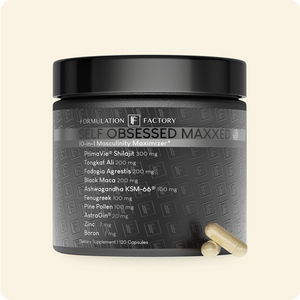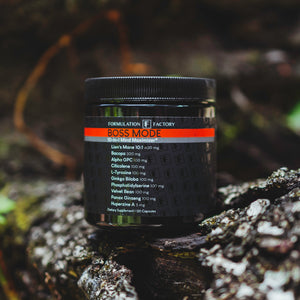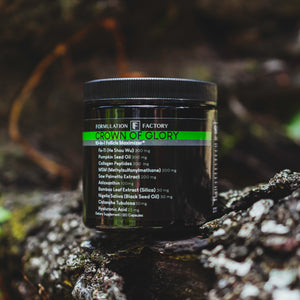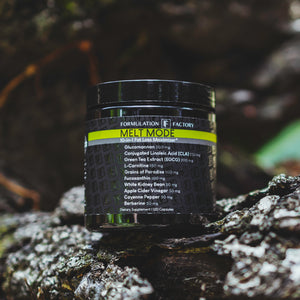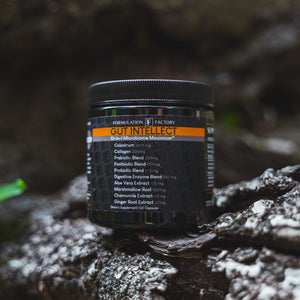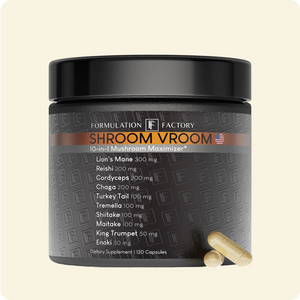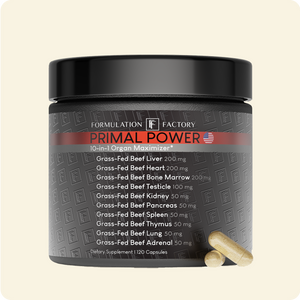Vitamin C Is Not a Bonus—It’s the Bulletproof Vest You’re Missing
Let’s just say it straight:
If you’re not supplementing with vitamin C, you’re leaving your body exposed.
And I’m not talking about the “take one orange and call it a day” nonsense. I’m talking about system-level firepower—the kind of thing that literally stands between you and disease.
Hard Truth: All Disease = Too Much Oxidation. Vitamin C = Your Antioxidant Commander
You’ve probably heard the term oxidative stress before, but let’s simplify:
Oxidation is biological rust.
It’s the process that ages you, weakens your immune system, breaks down tissue, and screws with your DNA.
Now here’s where it gets wild:
Vitamin C is the primary thing your body uses to fight oxidation.
Period.
When you’re low on vitamin C, you can’t neutralize oxidative damage. When you can’t neutralize oxidative damage, you become a breeding ground for disease—from joint inflammation to chronic fatigue to cardiovascular chaos.
So yeah, it’s not just for “boosting immunity.” That’s like saying water is just for thirst.
Wait… Don’t We Get Vitamin C from Food?
Short answer: not nearly enough.
Longer answer: humans are one of the very few mammals on Earth that can’t produce their own vitamin C. Dogs make it. Goats make it. We don’t. Why? Genetic mutation. Long ago.
In nature, animals crank out grams of vitamin C per day—especially when they’re stressed or injured.
You? You're lucky to get 60-90 mg from your "healthy" diet.
That’s criminally low.
Here’s the Real Question: Are All Vitamin C Supplements Created Equal?
Nope. Not even close.
The supplement aisle is full of BS—synthetic ascorbic acid, low-bioavailability forms, underdosed gummies pretending to be medicine.
You need to look for forms that actually absorb.
-
Liposomal Vitamin C – Wrapped in fat, so it survives digestion and gets into your cells.
-
Sodium Ascorbate – Gentler on the stomach, higher absorption.
-
Whole-food-based C – Can be solid, but often underdosed unless paired with the big boys above.
Bottom line: If your vitamin C isn’t bioavailable, you’re just making expensive urine.
So How Much Do You Actually Need?
Let’s make this simple.
-
If you’re healthy, active, and not dealing with major stress or illness:
Start with 1,000–2,000 mg/day, split into 2 doses. -
Under intense stress? Sick? Traveling? Training hard?
3,000–6,000 mg/day (or more) is common in high-performance protocols. -
Going through infection or recovery?
Some protocols go up to bowel tolerance—yes, that means taking it until your gut says “enough.” (This isn’t for beginners. Don’t be dumb.)
Pro tip: Vitamin C is water-soluble. That means your body can’t store it. You have to take it daily. Consistency > hero doses.
Your Challenge: Audit Your Current C
-
What kind of vitamin C are you taking (if any)?
-
Check the label—does it list “ascorbic acid” and that’s it?
-
What’s the dose? Is it in the 60–250mg joke range?
-
Does it mention “liposomal,” “buffered,” or “whole-food complex”? If not, you’re probably not absorbing jack.
Then reply to us and tell us what you found. We'll give you the no-BS breakdown and help you upgrade it, even if it's not our product. That’s how much we care.
Final Note: Vitamin C Is a Leverage Point. Treat It Like One.
This isn't about chasing one miracle nutrient. This is about identifying the handful of critical compounds that move the needle for your health and performance—and locking them in every single day.
And vitamin C? That’s top-tier leverage.
So stop treating it like a bonus. Start treating it like oxygen.
You’ll feel the difference. And if you don’t, you’re not doing it right.
Now go check your C, email us your current setup, and let’s make sure your body isn’t rusting from the inside out.
You’re too powerful to be playing defense.

![Self Obsessed STARTER: 10-in-1 Masculinity Maximizer [PREORDER ONLY]](http://formulationfactory.com/cdn/shop/files/Self-obsessed-start.png?v=1759966665&width=300)
